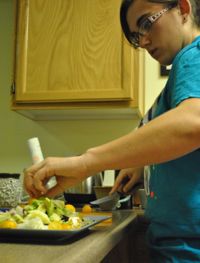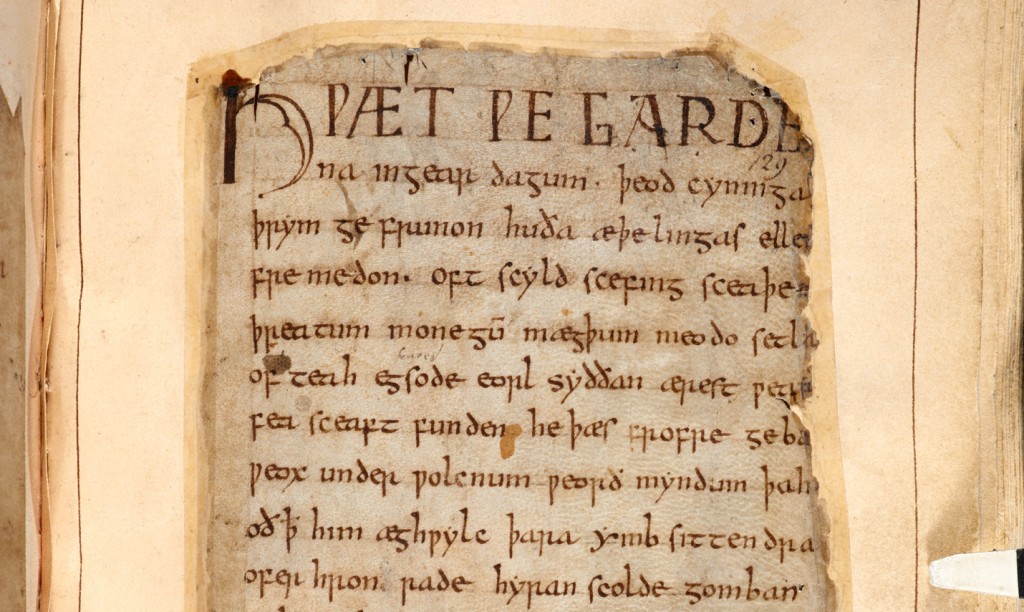Page 54 • (896 results in 0.029 seconds)
-
Oil Literacy panel After the screening of “Oil Literacy” there will be a panel discussion with these guest panelists answering questions and talking about the literacy of oil. Diana Gibson, Research Director for the Parkland Institute Gibson is a Canadian researcher for a think-tank in…
October 25, 2010 Oil Literacy panel After the screening of “Oil Literacy” there will be a panel discussion with these guest panelists answering questions and talking about the literacy of oil. Diana Gibson, Research Director for the Parkland Institute Gibson is a Canadian researcher for a think-tank in Edmonton that seeks to study the economic and social implications surrounding oil sands development and production. She is featured in the film. Matthew Johnson, Media Education Specialist for
-

Ashley Dell’Osa ’13: ‘Smart Ones for the smart one.’ “I feel like I’m constantly on the go. I wish I had more time and money to cook and have healthier food,” Dell’Osa said. “[Cooking] definitely goes on the back burner just because I’m so busy…
chicken feet during a semester study away in Trinidad and Tobago. “It was very gummy,” Dell’Osa said. “You sucked on it and then you had to spit out the bones. It was the weirdest texture I had ever eaten.” Dell’Osa adds some sliced grape tomatoes to her salad. Staple Food: chicken and Smart Ones meals Specialty: chicken apple salad Where she gets her food-spiration: her Italian cookbook, family recipes, and Google searches Where she gets her food: Safeway, Walmart, and Winco Grocery List: Smart Ones
-
The Dynamic Compression Summer School has been established to provide an overview of dynamic compression science appropriate for upper-level undergraduates and first-year graduate students. The four and a half days of activities will introduce students to the scientific fundamentals, contemporary research activities including informal discussions,…
program includes an introduction to the many opportunities related to the study of material response under extreme conditions. The summer school aims to strengthen ongoing interest and to enhance the long-term intellectual vitality of dynamic compression research. We encourage exceptional applicants with a desire to pursue a career or advanced degree, and who would contribute to the development, implementation and deployment of such technologies in practice. What is Dynamic Compression Science
-
Blog depicts people, places on seven continents From the tip of the world in Antarctica to the top of the highest peak in Africa, PLU students are immersing themselves in the world and gaining valuable insight this J-Term. Nearly 400 students are studying away on…
understand that driving does impact the world’s health, she wrote. The eight groups featured in the blog are: Journeying from Buenos Aires, Argentina, to Antarctica to study natural history and conservation issues with English professor Charles Bergman. Investigating the impact of globalization on two major world cities, Sao Paolo, Brazil, and Buenos Aires, Argentina, with assistant philosophy professor Brendan Hogan Studying the concepts of peace journalism in Dubai, United Arab Emirates, with
-
What to do with a whale skeleton? Dragging the arched five-foot jawbones of a gray whale out from the corner of a chicken coop in Lakewood, assistant professor of biology Mike Behrens saw the bones just didn’t match up. Laying out three of the jawbones,…
. So the group turned to Amazon, where sure enough, there was a book called “How to Clean a Whale.” Basically, once you have a skeleton, the rest of the process involves patience, a lot of hydrogen peroxide and elbow grease, Thornburg and Behrens said. “I’m sure when the students volunteered to help us, they didn’t think they would be pulling whale jerky off bones,” he said. Students will have a chance to study the anatomy of the whale – whose species makes the famed migration each year along the
-

TACOMA, WASH. (Feb. 7, 2018)— Michael Farnum, director of military outreach at Pacific Lutheran University, is playing matchmaker. “It’s sort of like a dating site,” Farnum said. But Farnum is not talking about the next OKCupid or Match.com. Instead, he’s connecting students through SaLUTE, a…
dating site,” Farnum said. But Farnum is not talking about the next OKCupid or Match.com. Instead, he’s connecting students through SaLUTE, a new two-way mentorship program he launched that pairs ROTC cadets with military veterans. “I collect everyone who is interested and where they are at in life and in the university,” Farnum said, “and I read that and I compare it to the others.” Then, the matchmaking happens. The result: cadets direct veterans to useful resources on campus, help them with study
-

As a professor in the Department of Languages and Literature, Dr. Collin Brown teaches Norwegian language and Nordic studies at Pacific Lutheran University. However, his love for his work runs so deep, he also started and manages a club called “The Dead Languages Society.” As…
’ Society meets every Friday at 3pm. At each meeting, we study an ancient piece of text written in a dead language. Members often volunteer to read the text aloud in the best way that we can manage, usually with help from Professor Brown. We discuss grammatical concepts of older languages such as Old English and Old Saxon, the origins of particular modern words and where they derived from, as well as translate these texts into modern English as best as we can. Brown’s path to creating the Dead
-

If you polled people, chances are few would raise their hands and volunteer to go back to middle or high school. For many, those were awkward times in just about every way imaginable. For folks that struggled with reading, writing, communication or other subjects, even…
at PLU and also serves as the director of PLU’s Writing Center. Yaden is a professor of Hispanic studies and director of the PLU Language Resource Center. “I see my unique contribution to the center as an extension of my role as the director of the Language Resource Center — expanding our support of languages out into the wider community, assisting middle and high school students with their language study and encouraging them to push their proficiency to higher levels,” Yaden said. Both Yaden and
-
Dr. René Carrasco is the new Assistant Professor of Hispanic Studies, who began at PLU in Fall of 2019. Originally from Mexico City, René came to the United States when he was 15. After he graduated high school, he went on to community college and…
, is not divine, it is not naturally like this. It has a story, a history. A reason. Once you understand that, then you can begin to change things, and hopefully make them better. HS: Why study language? RC: First of all, I think that one of the problems in the United States is that people don’t want to learn other languages. Most people don’t know other languages. I grew up in Mexico and you had to learn English. You just had to, for a variety of reasons, some good some not-so-good. And in other
-
Originally published in 2005 For two weeks of March, 2000, in the vast jungle along Mexico’s southern border with Belize, I joined a team of biologists and hounds in chasing and capturing a wild jaguar. I was in Mexico as a Fulbright Scholar. It took…
animal. One of the most beautiful animals in the world, the jaguar is the third largest of all the cats, behind only the tiger and the lion. Endangered throughout its range in Latin America, the jaguar remains the least studied of all the major felids. Using radio collars, biologists can study—and work to save—this elusive animal, using the signals from the transmitter to gather data on range, habitat needs, and behavior. Professor of English Emeritus Charles Bergman with an Imperial Parrot As we
Do you have any feedback for us? If so, feel free to use our Feedback Form.


